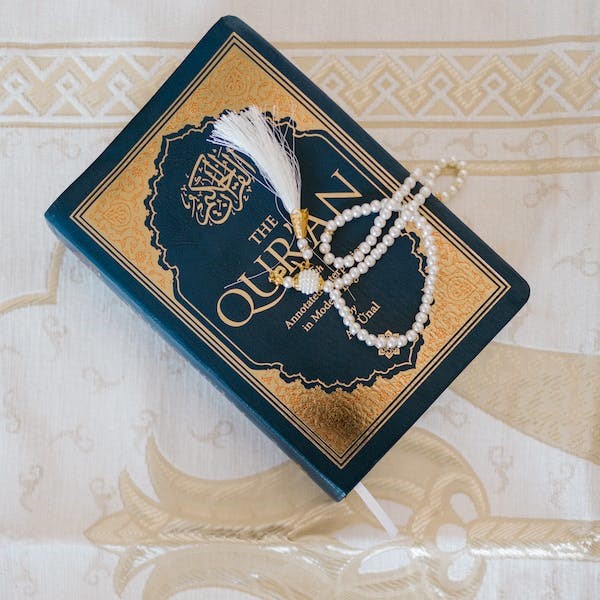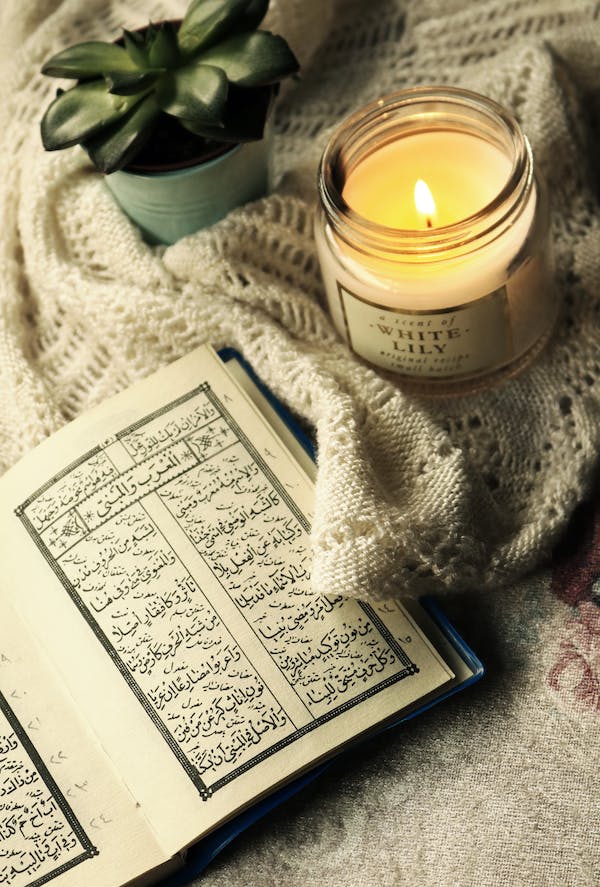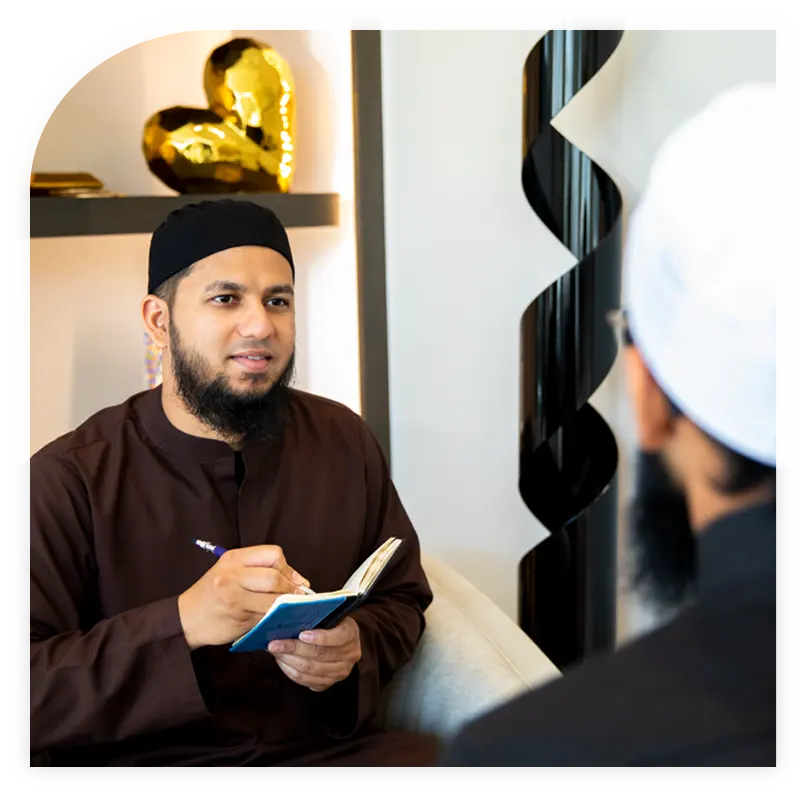Introduction:
In our increasingly diverse and multicultural society, the role of Muslim therapists has become pivotal. The intersection of spirituality and therapy is garnering significant attention, with recent studies underscoring a growing demand: patients are expressing a powerful desire to incorporate their faith into mental health treatment. However, many are hesitant to seek help, fearing their cultural and religious beliefs may not be adequately understood or respected in therapeutic environments. This apprehension highlights a critical challenge in mental health care – the need for an approach that genuinely respects and integrates an individual’s spiritual identity.
Muslim therapists are at the forefront of addressing this need. They offer a unique approach that seamlessly merges professional therapy with an in-depth understanding of religious principles. Positioned at the juncture of faith and mental health, these therapists bring a deep awareness of Islamic teachings and cultural nuances. This enables them to skillfully manage the delicate balance between spiritual beliefs and psychological well-being, providing culturally sensitive and therapeutically effective care.
Faith-Focused Healing: Unveiling the Significance of Muslim Therapists in Mental Wellness
This harmony offers a sanctuary where individuals can openly address mental health concerns within the framework of their faith. The coming together of therapy and religion in the expertise of Muslim therapists responds directly to the contemporary challenge, championing the acknowledgement of spirituality in mental health journeys while fostering an inclusive space for comprehensive healing.
Professional coaches and therapists are essential for bridging the gap between conventional religious beliefs and contemporary medical procedures. The vital part they play in contemporary healthcare will be examined in this article, providing a thorough grasp of their contributions.
Why is Islam Necessary in Mental Health Therapy?
The process of overcoming dysfunctional conduct, beliefs, and interpersonal concerns is therapy. The client will talk about their issues in therapy from their point of view. The therapist or counselor must know the client’s culture, way of life, and religious convictions for the procedure to succeed. The way of living as Muslims is founded on the Islamic faith.
As a result, the healing process for Muslims is closely tied to the principles and teachings of Islam. A Muslim therapist uses passages from the Quran or Hadiths from the prophet (peace be upon him) to guide us in healing since they know our worldview and how crucial the Quran and the sunnah are for our wellbeing.

Role of Muslim Therapists: The Heart of Harmony
A professional coach contributes a distinctive viewpoint to the medical field, stressing the need to integrate treatment with religion. Their strategy is founded on the idea that spirituality and mental health intertwine. This comprehensive perspective has significantly impacted the landscape of healthcare.
Mental therapy holds profound significance in the lives of Muslims, serving as a crucial pathway toward holistic well-being and spiritual harmony. Within Islam, the emphasis on mental health is embedded in the belief in a balanced, healthy lifestyle encompassing physical, mental, and spiritual dimensions. Seeking therapy is not only permissible but encouraged, as it aligns with the teachings of compassion, self-care, and seeking guidance to navigate life’s challenges.
Muslim therapists online offer a unique space where individuals can engage in culturally sensitive therapy that respects Islamic values and beliefs. These professionals provide a safe, understanding environment where individuals can address mental health concerns while incorporating Islamic principles and teachings into their therapeutic journey. Moreover, they help clients overcome life’s hurdles by integrating faith-based perspectives with evidence-based therapeutic techniques while drawing strength from their religious and spiritual foundations.
The Diverse Scope of Muslim Therapists
Muslim therapists are qualified to handle various mental health problems. They offer help with anxiety, sadness, trauma, and marriage and family issues. They are a priceless resource in contemporary healthcare because of their broad range.
Culturally Sensitive Care:
One of the main advantages of a Muslim therapist is their capacity to deliver therapy sensitive to cultural differences. They know the Muslim community’s specifics and ensure the treatment corresponds with cultural and religious values.
Bridging the Gap:
Experts excel at bridging the gap between religion and treatment, which can occasionally appear incompatible. They encourage honest communication between patients and healthcare professionals, fostering a climate of trust and understanding.
Overcoming Stigmas:
Stigmas surrounding mental illness are pervasive, and the Muslim community is not an exception. A Muslim therapist actively attempts to eliminate these stereotypes by urging people to seek support and assistance without worrying about being judged.
Holistic Healing:
They support the efficacy of holistic treatment that attends to both the intellect and the spirit. Their strategy promotes general well-being by integrating counseling, mindfulness, and spirituality.
Collaboration with Healthcare Professionals:
For thorough patient treatment, Muslim coaches or therapists collaborate with medical professionals. This synergy demonstrates the coherence of religious perspectives and therapeutic interventions.
The Power of Community:
In terms of mental health, community support is vital. Coaching or therapists frequently interact with communities to raise awareness of mental health concerns and to promote a sense of community.
Empowering Individuals:
The core of Muslim coaches’ strategies is empowerment. They give people the knowledge and skills they need to take charge of their mental health and well-being.
Navigating Religious Challenges
Muslim therapists are skilled in guiding clients through challenging religious issues. They offer direction and counseling based on Islamic values.
- Cultural Understanding: Therapists comprehend the cultural contexts that often intersect with religious beliefs. They appreciate the diversity within the Muslim community and the variations in religious practices across different regions and backgrounds.
- Resolving Doubts and Conflicts: Individuals may grapple with doubts or conflicts concerning religious beliefs, practices, or identity. They create a safe space for clients to articulate these concerns without judgement, facilitating discussions to explore, clarify, and reconcile these internal conflicts.
- Interfaith and Family Dynamics: They assist in navigating interfaith relationships or family dynamics that might create tension due to differing religious beliefs. Therapists help clients find a balance between honoring their faith and maintaining healthy relationships with family members of different beliefs.
- Identity and Spirituality: Professional therapists aid individuals in understanding and strengthening their religious identity. This involves exploring one’s connection to faith, spirituality, and religious community, fostering a sense of belonging and purpose.
- Crisis of Faith: For those experiencing a crisis of faith, therapists provide support to navigate this challenging period, offering coping strategies, reassurance, and a non-judgmental space for exploration.

By addressing these religious challenges through the lens of Islamic teachings and principles, Muslim coaches guide individuals toward a deeper understanding of their faith, helping them navigate complexities while maintaining mental and emotional well-being.
Illuminate Your Path, Elevate Your Spirit
Muslim therapists play a crucial part in today’s healthcare system. Their capacity to integrate treatment and faith offers people a holistic approach to mental health. They eradicate stigmas, promote empathy, and enable people to take charge of their mental health. Their efforts have made the healthcare sector richer, and the integration of religion and treatment is evidence of their commitment.
Ihsan Coaching – Your Beacon of Spiritual Wisdom
Ihsan Coaching offers personalized religious consultation and individual coaching tailored to your spiritual journey. Our dedicated team provides compassionate guidance and support, empowering you to navigate life’s challenges with faith and wisdom. Take the first step towards spiritual fulfillment and personal growth. Book a session with us today and embark on a transformative journey toward a more enriched life.

